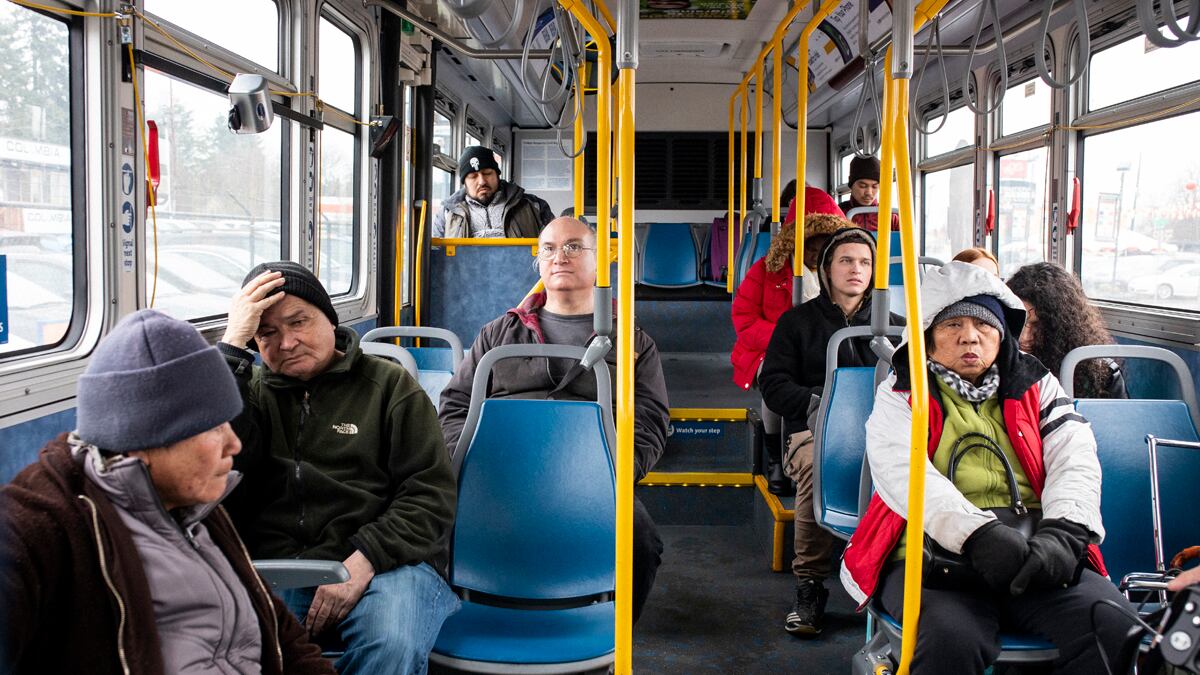At a public meeting earlier this month, TriMet officials shared some concerning statistics gleaned from a randomized survey of current and potential riders.
Rider satisfaction with the transit agency’s service continued to decline, from 87% in 2015 to 67% now.
The reason? According to transit officials, safety is keeping people off public transit. Nearly half of respondents said that safety concerns had prevented them from taking MAX. A quarter said safety improvements would get them to ride public transit more.
And it’s not just the public asking for safer buses and trains. City Commissioner Dan Ryan recently took a trip to TriMet’s offices on behalf of the Portland City Council to talk with general manager Sam Desue Jr. He pushed the agency to invest in more security. “Ensuring the safety of all passengers on TriMet buses and MAX is paramount, and we are not meeting that basic need,” Ryan tells WW.
This creates a challenge for TriMet executives. The system is, they say, actually, getting safer, following major investments in security in recent years. The agency has doubled its number of security guards, to nearly 350. Calls to 911 are becoming less frequent. Assaults on staff are dropping. But ridership is still down a third from prior to the pandemic.
At the board retreat, officials pointed to media reports of random, gruesome violence as fueling fears. “Media coverage of high-profile incidents on the MAX, and in Portland, overshadows data showing that MAX is becoming safer,” TriMet’s top safety official, Andrew Wilson, explained in a presentation.
To battle that perception, he proposed making security more visible: hiring more security officers and stationing one on every train every day, an initiative that would cost, at minimum, nearly $14 million.
Another idea: hire more fare inspectors who can also issue citations for code violations. Doubling the size of that program would cost $7 million.
These “program modifications” were presented merely for discussion, Wilson said. They’re “things we’re considering,” he explained.

